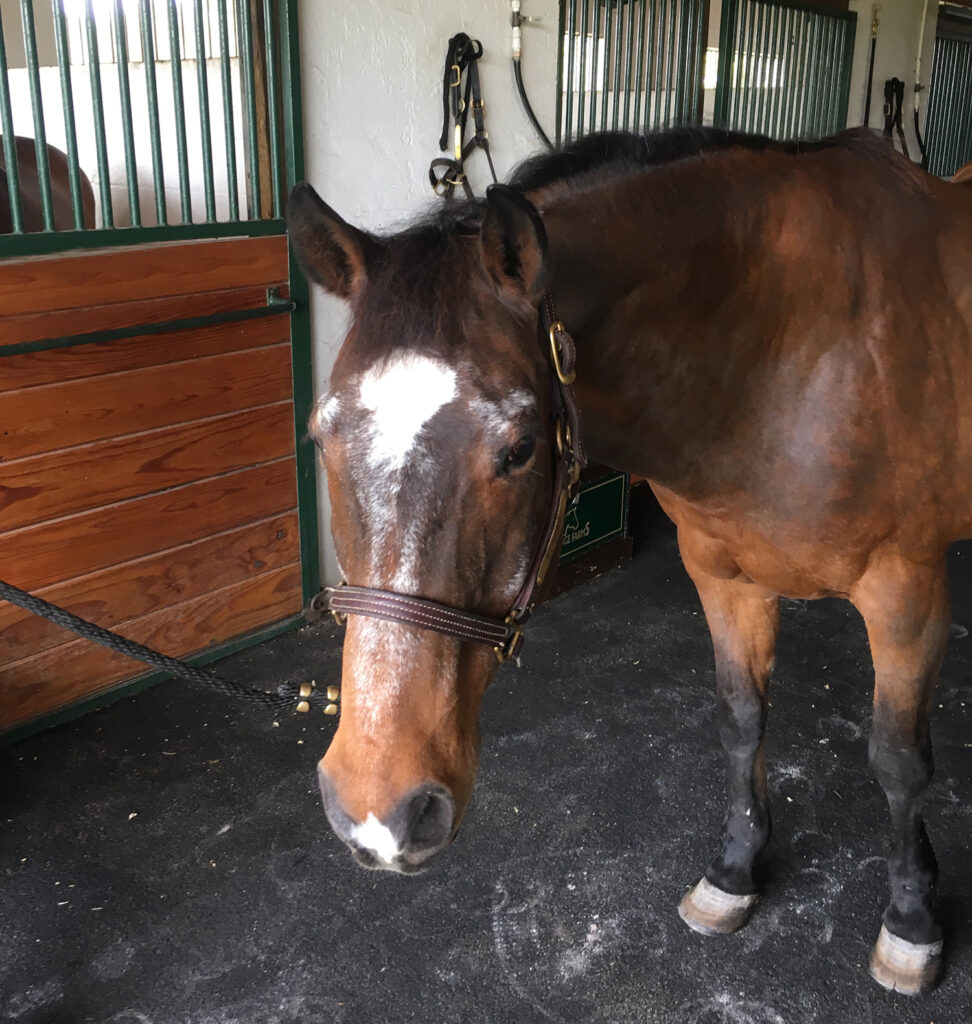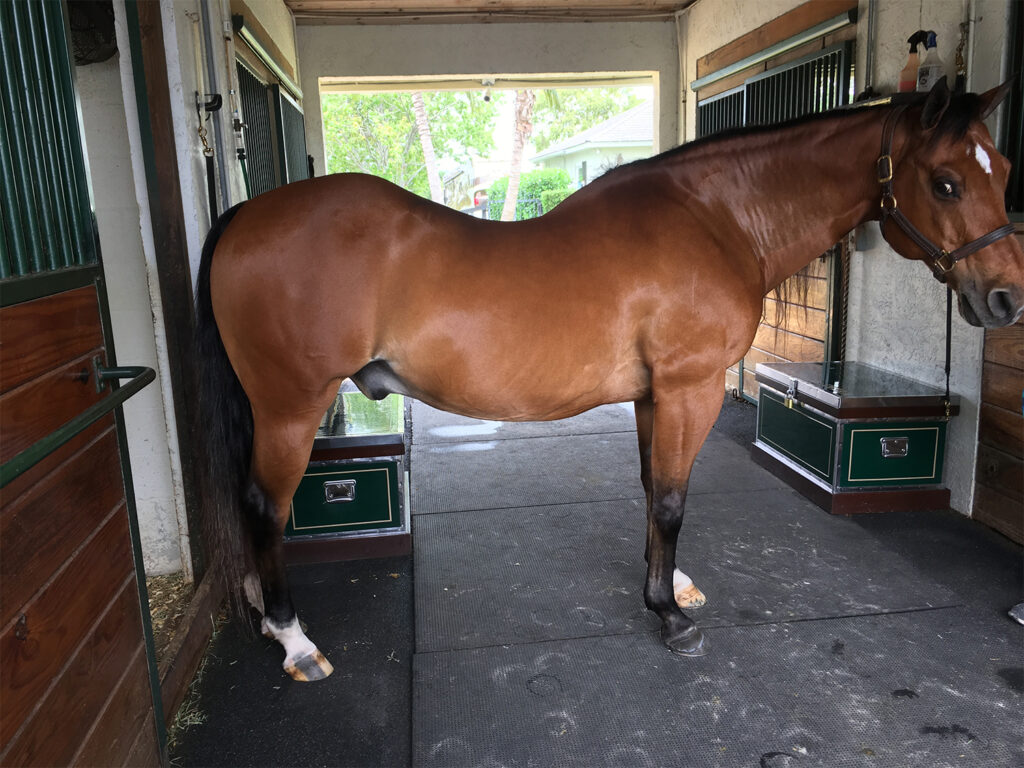Byron Reid, VMD
We love our horses and enjoy them during their best years but eventually horses age and many of us continue to care for them long after their most active years have passed. Caring for older horses involves using everything we have learned about caring for younger horses and more.
There are a number of special considerations for aging horses, but at the top of the list are dental care and recognizing pituitary problems. Other geriatric conditions that deserve attention include orthopedic pain, eyesight decline, organ dysfunction (such as liver and kidney disease) and a rise in the risks of several neoplastic (benign and malignant growth) processes, some treatable, some preventable and some not.

Dental Care:
Dental care is important for all horses, however, as horses reach late teens and beyond, a history of good dental care becomes critically important. If we have been providing regular dental work, meaning exams and floats with adequate restraint, sedation and carefully administered power tools, many horses will coast into their twenties and even thirties with minimal problems.
“Regular” usually means once yearly exams, with older horses occasionally needing twice yearly dental checkups. Sedation during the dental exam allows thorough examination and improves patient compliance so that adjustments can be accomplished with minimal patient and operator trauma. Power tools shorten the required time and difficulty in achieving perfect chewing surfaces.
As horses age, the roots become very shallow, and the crowns become chalice-shaped leading to gaps between adjacent teeth. These gaps are known as diastemata and occasionally teeth will need to be adjusted so feed material is not trapped and promote accelerated periodontal disease. Eventually, once old age has been reached, there will be tooth loss. Some teeth will require extraction and often table (chewing) surface reduction will be needed to compensate for uneven wear.
Pituitary Disease:
Pituitary problems are extremely common in older horses. Often, for several years after the development of Pituitary adenomas (enlargements of the pituitary gland), no outward signs of problems are present. Because of this, we often start testing for these adenomas in apparently perfectly normal horses in their mid-to-late teens. While the tests are not perfectly sensitive, they have improved over the years and picking up early pituitary disease can help extend the life and health of many horses. The importance of detecting and treating pituitary adenoma disease is because the overproduction of anterior pituitary hormones leads to a dramatic increase in the risk of laminitis and founder as well as an increase in the incidence of infections from aging immune systems. Physical symptoms of this disease can include long hair coat during spring and summer and loss of muscle tone.
Arthritic Conditions:
As is the case with humans, aging horses often experience an increase in the severity of existing arthritic conditions. Joint supplementation is often warranted and starting supplementation earlier in life seems to make the most sense. Another thing we can do to help mitigate musculoskeletal changes is hoof care, in some cases shoeing with an emphasis on balance.
Eyesight:
Vision problems are sometimes noticed by caretakers as increases in accidental tripping, bumping into things, or as changes to the appearance of the eyes. Examinations by your veterinarian and/or your veterinary ophthalmologist may be in order as many eye diseases can be successfully treated. Glaucoma, uveitis, cataracts and early cancers are examples of such treatable eye problems.
Organ Disfunction:
Although certainly not limited to geriatrics, older horses have increased incidence of liver and kidney diseases. Similarly, neoplastic diseases (both malignant and benign growths) can increase with age. These can be externally visible or harder to find as internal problems require more veterinary work to diagnose. While some examples of liver and kidney diseases will eventually prove fatal, many can be successfully managed for several years if recognized early. Likewise, some cancers are curable or amenable to palliative treatment for extended periods.

Today, horses are staying active and living healthier, longer lives, but with age comes the need for awareness of geriatric issues. Working hand-in-hand with your veterinarian and having an understanding of senior care will help your horse enjoy the best quality of life during the golden years.
